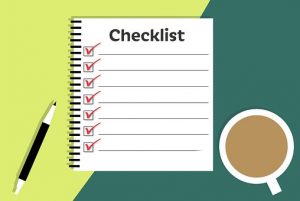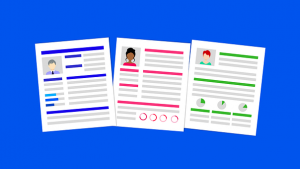
You might have heard candidates getting blacklisted in some industries after they quit or get fired. But did you know a simple job rejection letter could lead to the same thing? Some places I have worked at blacklisted candidates for less than a bad job rejection letter. The worst part is that they will never know what went wrong. I worked in HR for a long time and I have met some of the blacklisted candidates afterwards. They had to work in another industry because they have no idea why they were pushed out.
Sometimes the candidates did nothing wrong, or the mistakes they made isn’t a big deal. However, just like in many other scenarios, it depends on the people reading your letter. We would like to think the interviewers are objective and fair. I can tell you this right now, 80% of the time they are quite subjective. It depends on their mood, their personal beliefs and many other personal factors that are out of the candidate’s control.
Sending a job rejection letter is easy and normally candidates wouldn’t have a problem. Nevertheless, on the off chance you might get unlucky, you need to write a good job rejection letter just in case. It is an unfair world and so you need to prepare yourself. Therefore, I am writing this guide to warn potential candidates against this.
[the_ad id=”2580″]
Don’t be scared because you are declining a job offer
It is normal for candidates to decline a job offer, just like for employers to reject potential candidates. Therefore, it is a normal routine process to reject an employer. I have friends who don’t have the courage to decline a job offer, so they don’t respond to the employer. Now, that’s something you should NEVER do. Responding to people is very important.
It’s like this, just because you had an interview, it doesn’t mean that you will definitely accept the job. Same thing for the employer, interviewing you isn’t a guarantee you will get the job. However, this doesn’t mean you can say things like, “I will definitely accept this job offer” during the interview. If you end up declining the job, then you’ve misled the employer and most certainly are blacklisted.
Of course, there are some employers out there who react badly to rejected offers. However, the chances are the same as employers reacting badly when you ask for a raise or calling in sick. It’s a sign that maybe you shouldn’t work for them, and it’s not because you’ve done anything wrong. It is a two-way street. The employer chooses you and you choose the employer.
What to Include in a Job Rejection Letter or email

Your letter or email should include the following:
- Your appreciation for the offer
- A reasonable reason
- A good closing
As a rule of thumb, always address the letter or email to the person who offered you the job. Don’t send it to the general HR email address. You don’t want to offend the person who took their time interviewing you. Include your contact information and phone number to make it easier for the employer to identify you.
It’s always appropriate to BRIEFLY mention a reason for rejecting the job offer. There’s no need to, and DON’T, give extensive details as to why you’re rejecting the job offer. The employers frankly don’t care that much, unless they really want your talent. Otherwise, it might leave a negative impression as someone who can’t get to the point. Even though it’s obvious but don’t include any potentially offensive reasons. No matter how you feel before or after the interview, for the love of God DON’T include things like, “I don’t like your work environment”, or “Your Company has no future”. You would be surprised how often employers receive similar responses.
As with any professional communication, keep it professional. It’s also important to make sure that your letter is well written and doesn’t have any typos or grammatical mistakes.
[the_ad id=”2580″]
Show Your Appreciation for the Job Offer

Again, this should be a given but many do forget. It’s important to thank the employer for the job offer and for their time. Just like you spending hours preparing for the interview, the employer also spent several hours picking you from the rest. They have to read your resume, go through your social media, and schedule a time with you for interviews. Of course, they might also have recommended you internally beforehand as well. So, a genuine and specific thank you will always be appreciated. For example:
- “Thank you so much for the offer for the (Position name) position. I appreciate you for giving me the opportunity and considering me for the position”
- “Thank you for the interview, it was my pleasure to meet you and see the office space. I enjoyed getting to know (Company name) more and I appreciate the job offer.”
The important thing to remember is to be humble and don’t get carried away. Just because you got a better offer, doesn’t mean you should burn previous bridges. You never know when you will cross paths again. When you turn down the job offer, write something like: “I appreciate the time you spent telling me about the position, and I hope our paths would cross in the future.”
If you really liked the company or the employer, and think you might be interested in working with them in the future, write: “I’m fascinated by the work you’re doing and would love to find a way to be a part of it in the future. Hopefully, we could stay in touch even though it didn’t work out this time.”
[the_ad id=”2580″]
The letter doesn’t have to be too complicated. It just needs to have a:
Positive attitude
Never go negative, even if you dislike the employer or the company. Always be friendly and positive. You don’t want to burn bridges and get a bad reputation in the industry.
Personal greeting
You have no idea how much it annoys employers when you start with “Dear sir / madam” or just “Hi”. If you already interacted with the employer, you need to show respect with a personal greeting. Be sure to address the person who’s been handling your case! Seriously, candidates make this mistake way too often! For example you can start with, “Dear Jack / Sarah”, “Hi Jack or Sarah”. Always end with “Regards” and “Thank you”.
You don’t need to get too detailed. Just a quick “Thank you for the opportunity and hopefully our path would cross in the future.” would be fine.
However, don’t over express your gratitude like forcing sugar down their throats. Be reasonable because no one likes to be overwhelmed by your gratitude!
Send an email or make a phone call?

Usually, candidates reject the job offer through email. It’s considered the standard. However, there are cases a phone call together with an email is better. An email is always required because it leaves a paper trail. Your intent is in writing, so there shouldn’t be any dispute or confusion over whether you accepted or rejected an offer. Clarity is needed every time. You don’t want to be blacklisted because of misunderstandings.
But a phone call may seem more sincere and may leave a good lasting impression. It depends on how your interview went, if the employer took risks for your offer, and such. Give the employer a call when there’s extra effort put in your offer. As well as, if you know them personally or want to maintain a professional relationship. If you connected with the employer during the interview, then give them a call. The employer probably is somewhat emotionally invested in you now that they’ve offered you the job.
However, if reaching someone by phone would cause inconvenience, then just send an email. Be sure to add a note in your email like, “I’d hoped to reach you on the phone, but didn’t want to cause you any trouble.” But definitely send an email.
[the_ad id=”2580″]
Give a Good and Brief Reason

Whether you have accepted another offer or whatever the case is, keep your explanation brief. You don’t want to offend or annoy the employer by over explaining. To be honest, most employers wouldn’t even read past the first sentence if the email is too long. However, the reason must be good. Especially if you’ve spent a lot of time interviewing, it’s the right and respectful thing to do. Never leave the employer in the dark about why you’re declining the job offer. You may come off as irresponsible then.
There’s absolutely no need to go into detail about how you felt during the interview, the future of the position, or how awesome your new offer is. The best approach is to be short and sweet about your reason for not accepting the job offer.
For example:
- “After much thought, I’ve decided to accept a position at another company.”
- “After careful consideration, I’ve decided that now is not the best time to take the opportunity.”
- “Thank you for considering me. However, I have decided to accept a more suitable position for my personal development.”
However, note that I didn’t say to be honest. Of course try to be honest when you can, but there’re times when you shouldn’t. Some employers have ego issue and they will consider it as an insult if you turn them down. Some things are negotiable, like wage and benefits etc. If you are to turn them down, make sure to be vague but believable. Such as, “Unfortunately, my situation changed due to family issues”.
You can explain to the extent that is necessary. For example, if you decided to pursue another offer after several rounds of interview, it is wise to explain why. You can start with expressing how much you enjoyed getting to know the company and why you chose the position. Then start sharing your concerns that another offer that would be more suitable for you and your career goals.
If the company and people were terrible and that’s the only reason you have, then make sure to be concise. Write, “This may not be the right fit for me as I thought” or see above and below examples.
A vague reason is fine

This might seem unfair since employers turn down candidates all the time without any reason. However, at the end of the day you are the only looking for a job. You will present yourself better and preserve the relationship for the future if you give some explanation for your decision. Again, don’t insult the employer! Don’t be a fool! It’s enough to say, for example,
- “Thank you for considering me. After a lot of careful thought, I must decline after readjusting my career goals. The position isn’t the right fit for me at the moment.”
- “Unfortunately, our difference on salary is too huge. I would need $XXX to be able to cover my living costs and other expenses.”
- “I have given it a lot of thought, but I have decided this isn’t the right time for me to take on the position.”
[the_ad id=”2580″]
Negotiation and future possibility

It’s possible that your reason could cause the company to renegotiate with you. In some cases, you might gain a lot of it, such as increased salary offer. But if they offer something that doesn’t change your mind, it’s fine to just write, “Thank you so much for your offer. However, I don’t think we could be on the same page. I tried to adjust, but I do really appreciate you trying to make it work.”
These don’t have to be that specific, but you want to give them a sense of why you’re rejecting the job offer. Especially, since you worked so hard to get the offer before. For example:
- “I don’t think this position is the best fit for me right now.”
- “I’ve decided to accept another offer.” If you do this, you don’t need to say where. However, it is helpful for the company to know that they lost their candidate to the competition and need to improve their future offers.
Remember, unless the company is crazy, you want the company to feel like you’re the one that got away. Make them feel as if they lost a great talent, but don’t rub it in their faces. Be considerate.
[the_ad id=”2580″]
A Good closing to your letter

A good closing can break or make your letter. It’s the same kind of closing you use for any other professional letters. “Regards, best wishes, thank you, sincerely”, and such is fine.
The most important thing is to write what is right for you and the employer. Obviously, don’t use a standard and not personalized template. It should be in your voice, and it needs to be personalized. If you don’t know what to write, you can get inspiration from the templates below. Or use the guidelines in this guide and write a perfect job rejection letter.
The level of formality may vary, depending on; how formal the company is, and how well you know the person receiving the letter. You should be to tell after your interactions with the company, like interviews and emails. If it doesn’t feel right, then don’t write it.
Stay in Touch
Certain industries are small and word travels fast. So offering pleasantries in your letter is always a good idea. You don’t want to get blacklisted over such small things. Even though they may seem insignificant, they are important. Be sure to reference something you discussed during your interactions with the company to make it personal. It shows you care and is attentive. If you will meet each other in the foreseeable future, then mention that as well. Otherwise, you can make a simple mention that you wish the employer all the best.
- “I hope to see you next week at (Conference name) conference!”
- “It’s been a pleasure getting to know you, and (Company name)”
- “Thank you for your time and support. I wish you all the best.”
[the_ad id=”2580″]
When to Send a Job Rejection Letter

Before sending a job rejection letter, make sure you absolutely don’t want the job. If you are unsure, such as about the salary etc., then try to negotiate a counter offer. Once you send a job rejection letter, there is almost no chance you will be offered the job again.
However, if you completely certain then send a polite, grateful and timely job rejection letter. You need to maintain a good relationship with the employer no matter what. You never know when your paths might cross again. So it’s always a good idea to be on the good side.
One thing to remember, tell the employer as soon as you made your decision! Don’t hesitate, make up your mind and send the rejection letter. Even though employers usually take time to get back to you, it doesn’t mean you can too. The employers might feel being toyed around and that you are indecisive person. Negotiation is one thing, but don’t wait too long to decline the job! The employer must look for another candidate if you decline, so don’t cause trouble by not replying on time. It’s a real inconvenience for them, which can turn into frustration from disappointment, if you tell them too late.
Why Send a Job Rejection Letter

Why send a job rejection letter also depends on your reasons for rejecting the position. If the job wasn’t a good fit, but you liked the company, then include it in your letter. Write that you were impressed with the company but position wasn’t a good fit for you. You can briefly explain why, such as the position required different skill set etc. But don’t be too detailed and long! There is a chance the employer would then offer you another role instead.
When the Company isn’t great
If the company is bad because of its culture, employees, etc., then a short letter with vague reasoning is fine. Candidates are generally better off not expressing specific dissatisfaction with the company or sharing any criticisms. You might ask, who on earth would actually do this?
Let me tell you, I personally encountered at least 1 in every 15 candidates. I wouldn’t mind too much, but there are employers who mind A LOT. Again, word travel fast, don’t get blacklisted because you feel the need to tell them off. They wouldn’t change and you are out of a job.
When the pay is low or has bad benefits
If the job is what you wanted, but the offered salary or benefits aren’t good enough. Then voice your concerns in your letter or email. You want to enter a counter negotiation. However, if it didn’t work out, then decline it whilst expressing your thanks and reaffirm your excitement about the position. Sometimes employers will come back to you with a better offer when they see you are truly prepared to decline.
[the_ad id=”2580″]
4 Job rejection letter and email Templates

Job Rejection Letter Template 1
Dear Mr./Ms. (Last Name),
Thank you very much for offering me the position of (Position name) with (Company name). Unfortunately, my circumstances have changed and therefore I regrettably must decline your offer.
I sincerely appreciate you taking the time to consider me and I enjoyed learning more about (Company name).
I wish you all the best in the future!
With regards,
(Signature)
Your Name
(Date)
Job Rejection Letter Template 2
Dear Mr./Ms. (Last Name),
Thank you for offering me the opportunity to work at (Company name). After a lot of careful thought, I must decline after readjusting my career goals. The position isn’t the right fit for me at the moment.
Once again, I’d like to express my gratitude for the offer and my regrets that it didn’t work out.
Thank you for your understanding.
Sincerely,
(Signature)
Your Name
(Date)
Job Rejection Letter Template 3
Dear Mr./Ms. (Last Name),
Thank you for considering me for the position of (Position name) at (Company name) and for reviewing my counter offer. However, I have decided to accept a more suitable position for my personal development.
Once again, I want to thank you so much for your time and consideration. I wish you and (Company name) all the best.
Regards,
(Signature)
Your Name
(Date)
Job Rejection Letter Template 4
Dear Mr./Ms. (Last Name),
Thank you very much for offering me the position of (Position name). Regrettably, the salary was beyond my expectations. I would need $XXX to be able to cover my living costs and other expenses. Therefore, I must decline your offer.
I really appreciate your time and it was my pleasure to meet you, as well as to know more about (Company name).
Again, thank you for the opportunity and all the best to you.
Best wishes,
(Signature)
Your Name
(Date)
